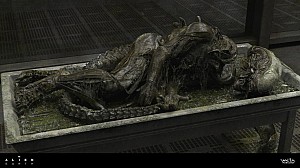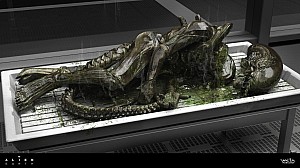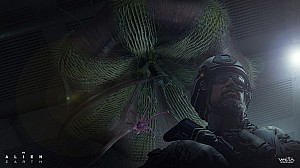What rules should have been followed by the crew of Prometheus to survive? [Spoi
Prometheus Forum Topic
Volo
MemberOvomorphJun 19, 20121530 Views10 RepliesDear community,
Upon watching the film one cannot shake off that utter feeling of Prometheus scientific mission being inevitably doomed to catastrophic fiasco ever since its departure from Earth. Absolute incompetence of crew, conflicting command, as well as lacking of planning, survival skills and subordination led it to grave danger long before meeting any dangerous life forms.
Surely an exploration is a recipe for disaster with ingredients like: unfamiliarized crew not interested in the outcome of the expedition, three officers in command with overlapping authority (Captain Janek, Ms. Vickers and Peter Weyland himself) giving contradicting orders and no effective weapons on board for defense. Did I forget anything? Oh Yeah! Everyone is bleeding drunk on duty.
Let us try to imagine planning the mission. Not that we could prevent the depicted mission outcome, but let us try to invent ways to minimize the risks of sending an expedition to a previously unobserved, planet with following characteristics:
[b]1. Planet size and surface – unknown. Presumably size is equal or smaller than of Earth.[/b] (Engravings on Earth depicted giant humanoid inhabitants which may have evolved in weaker gravity than humans;
[b]2. Atmosphere – unknown. Presumably gaseous atmosphere of unknown composition.[/b] (Atmosphere may be anything from dense methane ocean to vapors of sulfuric acid. However ancient bipedal life forms should be better suited for thin gaseous atmosphere. No one can tell how they breathed though);
[b]3. Life – possible.[/b] (Hey, the mission is to the place where life supposedly originated, we should expect at least some of it).
I guess we may divide the whole mission planning into three stages (the most complex bit – interstellar travel is omitted due to cryogenic sleep):
[b]1. Prelaunch stage[/b] (research and development, crew selection, training, supplies etc.);
[b]2. Orbital activity[/b] (mapping, reconnaissance, landing etc.);
[b]3. Planetary activity[/b] (survival, scientific research, liftoff back into space etc).
Below (with your collaboration) we shall make a checklist of the basic actions and precautions which, if properly followed, should have kept the mission safe and efficient. The items of the list shall be accepted as a short facts accompanied by a brief description. Please make entries based on literature, history, facts or valuable personal experience.
Comments of folks with background un survival and military are most welcome. Also looking for feedback based on knowledge in engineering, medicine, psychology and other relevant areas.
Are you an avid Alien fan looking for a dedicated online community of likeminded fans? Look no further! Create your own profile today and take part in our forums and gain XP points for all the content you post!














